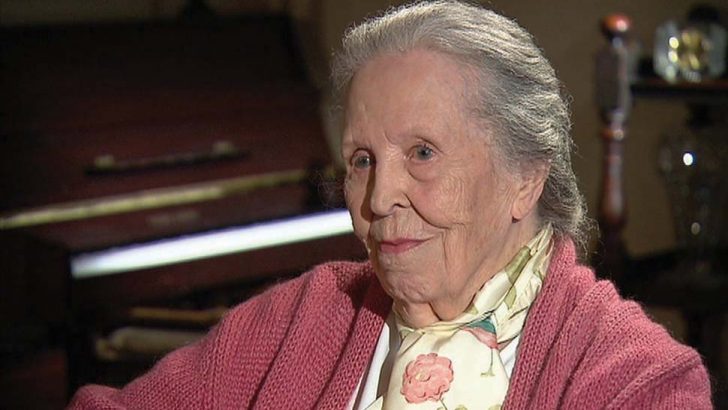Are older people kinder and more considerate of others than the younger generations? Yes, they are, according to a global study carried out by the University of Birmingham – involving more than 46,000 people in 67 countries.
During the Covid-19 pandemic, older people were more likely to maintain social distancing for the benefit of others, and more considerate, generally, about the impact of their behaviour on others. Older people were more likely to act in a way that benefited others.
Older people were found to be more generous about giving to charity, although they’re more inclined to favour charities in their home country, while younger people are more drawn to international charities.
Women are kinder, in general, than men, and those in modest circumstances are often kinder than those who are wealthy.
Examination of conscience: I am appalled, sometimes, when I consider how self-centered I was as a young person and how thoughtlessly I sometimes treated others. (My friend June Levine described me as “a monster of egotism”!)
But I also see that, to a certain extent, it’s natural for younger people to be more selfish. They have to make their way in the world, to assert themselves and project self-confidence. A degree of ego is needed to weather the knocks of life and to develop robustness.
Kindness
Age teaches us kindness – because we’ve been through more experiences, difficulties and sorrows. At a certain age, we have “walked a mile in another’s moccasins”. And the teaching of Christian virtue – “do unto others as you would have them do unto you” – may take some years to sink in, and to turn from theory to practice. Call it a lifelong learning curve!
It’s significant that women, and the less well-off, are found to be kindest: they’ve been closest to the grassroots of life’s struggles and know what it’s like to worry about the rent, the energy bills, the family’s health.
‘Be kind’ is a popular mantra: but sometimes you have to go through some of life’s rough patches to put it into practice.
Heaven’s gain, Ireland’s loss
Máire Mac an tSaoi, who has just died aged 99, was a formidable woman, a great Irish scholar and a fine poet. When I took my late husband to meet her, she told him a most beguiling story about Brian Boru and the Ireland of ancient kings.
Máire was the daughter of the politician Séan McEntee and his cultured wife Margaret (an expert in the novels of Balzac). Máire had three uncles priests on the maternal side; she was especially devoted to her uncle Fr Paddy Browne, who was with Séan MacDiarmaida during his last night on earth, in 1916, and cherished that memory all his life. Máire told me that her priestly uncles were a greater presence in her young life than her father was – he was always so busy with politics.
She married the equally compelling intellectual Conor Cruise O’Brien, and Conor explained in his own memoir that it was Máire’s desire to be married in a Catholic church; he assented that his first marriage, which had been dissolved in a civil procedure, had not been a sacramental one.
They adopted two children, born in Africa, Patrick and Margaret, who brought them great happiness.
Máire’s memoir The Same Age as the State is a revealing recollection of growing up in Ireland in the 1920s and 30s, and the stories and values that were part of that time. Older Irish people, she recalled, would endure afflictions and loss with great stoicism: their attitude was “welcome be the will of God”. Ar dhéis Dé go raibh a hanam.
***
Dorothy Byrne, a Cambridge don and previously head of Channel 4 News, has embarked on a campaign to make young women more aware of their fertility. She believes that while sex education has bombarded young people with information on contraception, they may be less alert to the workings – and limits – of their fertility.
Indeed so. ‘Choice’ has imparted the idea that anyone can have a baby at any time, but nature doesn’t operate like that. Ms Byrne’s personal experience has been instructive – she just managed to have a child at 45, after a complex procedure of assisted conception.
Some commentators have responded with a ‘how dare she?’, but surely Dorothy Byrne has facts on her side: and support from other specialists, some of whom even want the contraceptive pill to come with a warning saying “don’t leave it too late to try for a baby!”
Actually, British birth rates have fallen to their lowest point since 1938 – to barely 1.5 children per woman. Small families and no families is a Europe-wide trend, and it’s piling up problems for the future.


 Mary Kenny
Mary Kenny Máire Mac an tSaoi
Máire Mac an tSaoi 